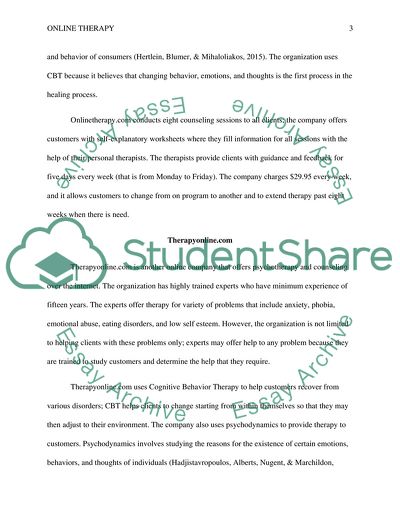Cite this document
(Online Therapy Report Example | Topics and Well Written Essays - 2500 words, n.d.)
Online Therapy Report Example | Topics and Well Written Essays - 2500 words. https://studentshare.org/psychology/1867793-online-therapy
Online Therapy Report Example | Topics and Well Written Essays - 2500 words. https://studentshare.org/psychology/1867793-online-therapy
(Online Therapy Report Example | Topics and Well Written Essays - 2500 Words)
Online Therapy Report Example | Topics and Well Written Essays - 2500 Words. https://studentshare.org/psychology/1867793-online-therapy.
Online Therapy Report Example | Topics and Well Written Essays - 2500 Words. https://studentshare.org/psychology/1867793-online-therapy.
“Online Therapy Report Example | Topics and Well Written Essays - 2500 Words”. https://studentshare.org/psychology/1867793-online-therapy.


